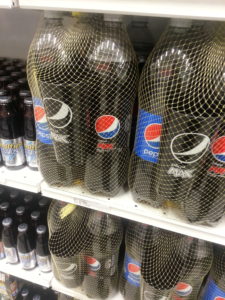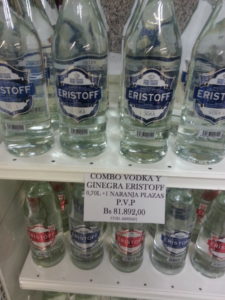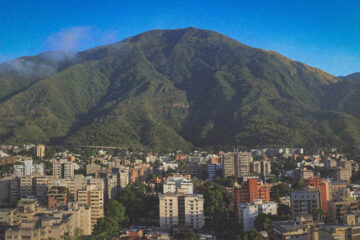Hyperinflation, institutionalized blackouts, endless gasoline queues, cash shortages, an accentuated collapse of utilities and public infrastructure—these are all but some of the problems that have plagued Venezuela for around a decade now, none of them are new yet they’ve been exacerbated and dialed to eleven as of late.
It is the same tale of this country’s slow collapse, where it’s people either ultimately flee or struggle to survive for as long as possible. Yet, despite all of the calamities that you’ll find in the country Caracas is a right now very different and contrasting tale; the capital is a wonderland if you compare it to the utter collapse found in other regions of the country, a collapse that can no longer be hidden by the regime’s media machine.
A substantial amount of resources and efforts have been spent by the regime in order to keep the capital afloat, it is after all, the seat of power. Keeping the cerros calmed and appeased enough to maintain the delicate status quo is a paramount goal of theirs. Scheduled power blackouts—I mean, the “Load Balancing Plan” continue to plague almost every other state in the country, but here in the capital I’ve only experienced a couple power flickers over the past two months at most.
The sheer difference in the overall state of things makes Caracas feel like the Venezuelan Shangri-la, for the time being at least.
It all feels like a faint and unsustainable illusion though; at a first glance the capital of Venezuela is presented to you as if everything is alright in the country: no widespread protests, the usual crime and misery; heck, aside from some sporadic and meddlesome raining the weather has been extremely enjoyable this month so far, the birds are singing, and everything seems to be working.
In a way it grants you a sense of respite after all that’s happened over the past years, but you know that it’s not right—deep down you know that nothing has improved and it’s all a unsustainable facade. At times it all feels too good to be true and it’s easy to accept that as truth. However, the more you take a closer look at the city, the more cracks you’ll find.
Hyperinflation has slowed down it’s pace, not because the economic situation has improved—quite the opposite rather, but because everyone’s purchasing power has already been impaired or outright demolished, putting it in other terms, everyone’s simply running out of money.
The availability of erstwhile hard to find items has significantly improved, it’s quite amazing for me to see an entire row full of toilet paper (of the same brand) after I was part of a kerfuffle over it in that same place about five years ago.
For the first time in a while I’m openly seeing more bundles and “buy X amount of Y and get Z for free” offers in supermarkets and other establishments; gotta move that product somehow since nobody is spending money on them.
Imported American products and goodies have begun to fill the empty gaps in rows in a more open manner, courtesy of a booming business paradigm that involves importing said American products in order to turn a profit in greenbacks (no one in their right might would prefer Bolivars).

Sounds good, right? I mean, you see products that are new and cause awe and amazement in customers. Sure, you can buy them if you fancy them, provided you’re willing to part of with a month’s worth of salary for that fancy barbecue sauce or cereal, but the reality is that these items (which may be normal in their respective places of origin) are an unaffordable luxury for most, far more expensive than the protein many can only dream of consuming these days.
You may see people walk in their streets going on their affairs, but when you engage in a conversation with them then you’ll realize that nothing has improved in their lives. A couple days ago I had a conversation with an elderly woman, who told me of what little they can find and eat in their household, it’s the type of heart-crushing stories that have become commonplace in the country.
Quite simply, there’s no money in the streets, at least not in a healthy and stable manner.
While you’ll now find places stocked with imported goods, locales like bakeries have begun to ran out of materials once more, a nearby bakery hasn’t put out bread for sale in days because they do not have flour.
Water distribution is as spotty as ever in this, the much celebrated Cradle of Bolivar. As a matter of fact I began drafting this post after going through five consecutive days without running water; We had to stretch our reserves as best as possible and I skipped dinner a few times just so that I wouldn’t need to waste more of our water reserves in cleaning my dish.
In spite of that, I’ve heard tales of places that have gone for months without a single drop of water running through their pipelines.
Telecommunications are a nightmare. Trying to make a phone call with your cellphone here can often be the cause of migraines, given how spotty reception has become. My cellphone rent is essentially free so I guess I get what I pay for.
Internet has been spotty and was constantly failing in Caracas all week, attributed to a widespread DHCP failure. I got hit by it twice and lucked out in both opportunities with the usual jury rigging tricks.
The sheer contrast between the already distressed life you currently experience in Caracas today and the very much harder one you’ll experience in other Venezuelan cities is like night and day. I suppose that the old saying “Caracas es Caracas y lo demás es monte y culebra” (Caracas is Caracas and everything else is grass and snakes) has finally been applied to its maximum expression.
Relatively speaking, living in Caracas today feels like you’re smooth sailing when compared to say, living in Maracaibo (the second largest city in the country), where 12-20 hour blackouts are part of their daily routine. Cannibalizing what remains of our infrastructure and sacrificing the rest of the country just to keep the seat of power afloat doesn’t feel right and quite frankly it shouldn’t had come to this.
It’s all a faint masquerade though, it feels like the city is stagnated in time, nothing moves forward while everything just slowly continues to collapse. Everything feels stuck in a weird calm bubble of time—and it just won’t last.
This stagnation is also originated from our current political scenario, which doesn’t seem to move forward nor backwards. There are many between both sides of the conflict that would prefer to continue to keep things as is, they’ve greatly benefited from the socialist misery in the past and would rather prefer to continue to do so—but that’s a rambling for another time.
-Kal




